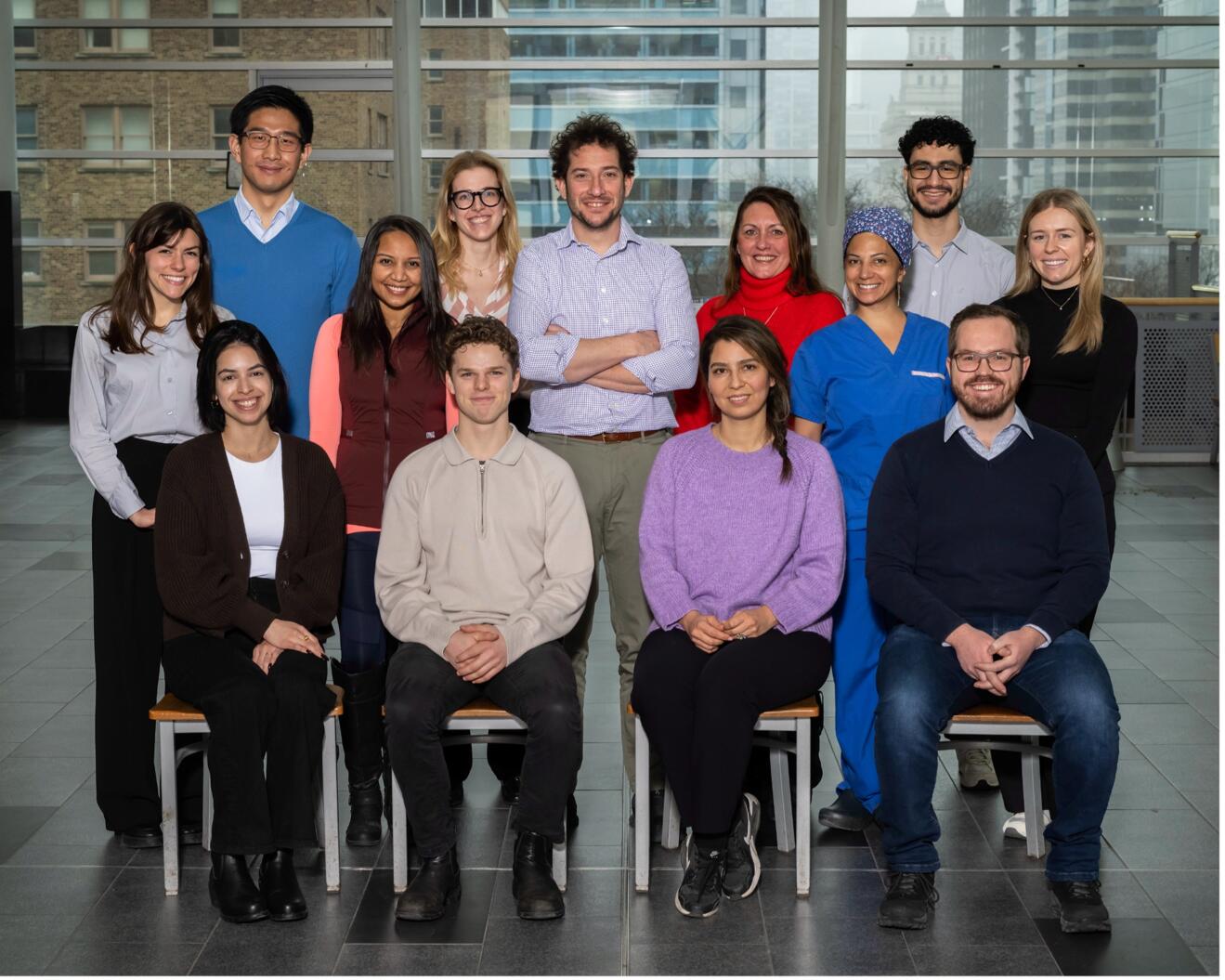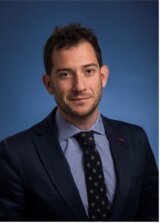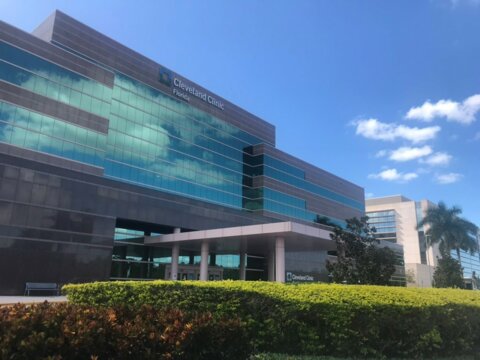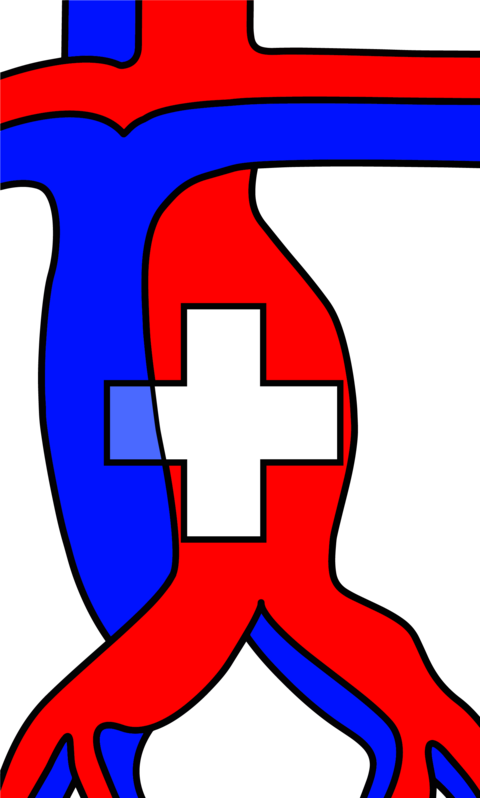Fellowship: finding, financing and fostering
After having finished my studies at the University of Bern in 2017 and commenced my residency at the Kantonsspital Aarau, I started my clinical work at the Inselspital in Bern in summer 2020 and got exposed to hepatobiliary surgery and transplantation. I quickly developed a passion for the treatment of patients suffering from these diseases with the necessity complex pre-, peri- and post-surgical aspects of surgical (as well as medical) management. Since the start of my residency, I already had a great interest in research and have worked in different teams – and with the focus of clinical speciality the research area of interest shifted to hepatobiliary surgery and liver transplantation. In 2022, I was fortunate to be able to discuss with Prof. Dr. Guido Beldi my ambition to pursue becoming a surgeon scientist. To acquire the necessary skillset, a research fellowship position abroad, within the field of interest as well as honing and learning new methodological skills, is indispensable. After having sent multiple applications to different experts and their respective centers around the globe – most resulting in frustratingly no responses, a few declines and two interviews – PD Dr. Anja Lachenmayer forwarded me a post from X (formerly twitter) (Figure 1).
I quickly engaged and sent my documents to Dr. Gonzalo Sapisochin. We had a virtual interview beginning of February 2023, followed by a separate interview with the current research fellows at the time. A couple of weeks later I was privileged to receive a positive reply and got the position which I was supposed to commence on 3rd of July 2023. Unfortunately, due to a delay in drafting of the contract from the human resources department I was only able to submit my work permit and visa application at the end of May 2023 through the electronical system of the Canadian authorities. An aspect attributing to difficulties applying for work permits to Canada is the fact that biometrical information (fingerprints and photograph) needs to be provided in the nearest facility in-person. As there are no such accredited facilities available in Switzerland, one needs to travel abroad. Additionally, the appointment can only be scheduled once the work permit has been submitted and a linked application number has been generated by the corresponding authority. With some delay, I received my work permit at the end of July 2023 and booked a flight to Toronto leaving a couple of days later.
Luckily, UHN research fellows can be financed through existing funding and therefore receive a salary on a bi-weekly basis. This is the case for my research fellowship position. For the other two positions for which I had interviews, funding would have been needed to be self-acquired through, e.g. the Swiss National Science Foundation (SNSF) post.doc mobility grant. Most of my seniors at the Inselspital in Bern mentioned having experienced these difficulties of financing. I consider myself fortunate experiencing my current situation with a guaranteed salary.
Being at one of the leading centers world-wide in my field of interest allows me to tackle different goals. This is being fostered by a well-established team leader who allows me to explore, navigate and hone my analytical research skills. His existing collaborations result in different opportunities for me to also experience different ways of teamwork within this vast diversity of multi-cultural and international experts that University Health Network (UHN) has to offer. The access to cutting-edge research, large databases and ongoing innovative advancements ensures my continuous professional scientific development. In addition to my research, I am currently enrolled in the ‘Global Oncology Leadership Development’ program, through which I may foster a broader view on oncology as well as different international connections with other (predominantly clinical and non-surgical) fellows enrolled in this program.
Experiences: chocolate versus maple syrup
Transitioning from a surgical resident in Switzerland to a research fellow in Canada involves also navigating cultural differences. As in the Greater Toronto Area nearly half of inhabitants are immigrants, this results in various approaches and view on work, different cultural nuances, different social interactions, and communication as well as cuisine experiences. Overall, this broad cultural shift is associated with a more laid-back attitude, favor of ‘lifestyle over work’ compared to the way of life I have previously experienced in Switzerland. I have witnessed once more that open-mindedness, a change of perspectives, flexibility, mindfulness of communication and engaging in social activities are key to a successful cultural adaptation abroad.
I experienced marked differences to Switzerland, of how work commencement is organized (e.g. badge, email, access to programs etc.) and that this may take up to two weeks to complete once one is physically present at the place of work. This in turn lets one to appreciate even more of how organized things are being handled in Switzerland. Other to some extent neglected difficulties (apart from financing) of fellowships abroad include regulations of areas such as visa, legal and insurances (i.e. place of residency [keeping in Switzerland versus emigration] with intertwined aspects of health insurance and taxes, bank account, phone number etc.). An example was the impossibility of reaching a person from the ‘Immigration, Refugees and Citizenship Canada (IRCC)’ handling one’s visa application - with the only information supplied being the current average time it takes to process 80% of applications. Another example was finding a solution to an “egg-or-hen” like problem: (1) to get an appointment to get a Canadian bank account one needs a Canadian phone number and (2) to get a Canadian phone number one needs a Canadian bank card. The solution can be astoundingly simple: walking into a bank branch with a large amount of patience & keep on smiling throughout.
Being friendly in general is crucial for interpersonal connections as well as for a smooth transition to a new country. Interestingly, having a big jar of little Swiss chocolate bars on one’s desk can serve as a delightful catalyst in overcoming initial cultural barriers as it transcends language barriers. The Canadian flag incorporates a maple leaf and people living in Canada are proud and fond of their maple syrup. As its upcoming harvesting season is February to May, I too am looking forward to the many experiences that my work place, as well as Canada has to offer and to embracing the multitude of valuable academic know-how yet to refine, learn and integrate into my research skillset.
Research Team and Facilities
The research team’s principal investigator is Dr. Gonzalo Sapisochin, who is the Program Director for the Transplant Oncology program and focuses his research on hepatobiliary surgical and transplant oncology. Through collaboration with other specialists and investigators, these topics are being explored by interventional, translational and retrospective studies in his dry research lab.
Dr. Gonzalo Sapisochin has completed his medical studies at the University Complutense of Madrid, Spain. This was followed by residency at the Vall d’Hebron Hospital in Barcelona, Spain where he became a staff surgeon. In 2014, he started his Clinical Fellowship in Abdominal Transplant and HPB Surgical Oncology at TGH followed by being employed as a staff surgeon. Since 2016 he is acting as an associate professor of surgery at the University of Toronto. His academic profile includes over 220 indexed publications with an h-index of 46 focusing on hepatocellular carcinoma, cholangiocarcinoma and transplant oncology.
Since 2017 research fellows (Dr. Andre Gorgen, Dr. Daniel Zhang, Dr. Phillipe Abreu, Dr. Tommy Ivanics, Dr. Marco Claasen, Dr. Felipe Gaviria) have become an integral part of the team. Since 2023 this position is being held by myself and Dr. Zhihao Li. The academic achievements are facilitated by team members indispensably consisting of a research manager, transplant clinical trials coordinators, clinical research analysts, clinical study and regulatory assistant, clinical research study assistant, research associate, academia interested clinical residents and fellows as well as students and many others. Some of these personnel and funding is shared by other research groups.
Research topics being developed
As a dry laboratory, the team performs single and multi centre studies of retrospective, translational or interventional nature. The lab started to publish on the growing experience of living donor liver transplantation (LDLT) and the validation of the local transplantability criteria, which has resulted in a sparked interest in the field of transplant oncology (treatment of cancer through transplant medicine and surgery), with particular focus on hepatocellular carcinoma (HCC) and intrahepatic cholangiocarcinoma. Topics of interest are bridging and downstaging procedures influencing adverse events of patients awaiting liver transplantation (i.e. dropout from waitlist e.g. due to disease progression or death) as well as post-transplant outcome (e.g. survival and recurrence). Regarding the same diseases, interest with regard to surgical oncology and correlating questions have been and are being investigated in. These in turn have resulted in ongoing international multicentric interventional studies (e.g. phase II HCC perioperative therapy with Tremelimumab Durvalumab1 or cell-saver usage during liver transplantation for HCC2), as well as translational diagnostic studies (e.g. radiomics or liquid biopsy3).
The institution
The Toronto General Hospital (TGH) is part of the UHN, with UHN being ranked as the best Canadian Research Hospital since 2011 and as the fifth World’s Best Hospital since 2019. In 2022, the UHN encompassed a total of 1 523 beds, with 17 938 employees of which 1 192 are full-time staff physicians and provided additional training options for a total of 17 482 learners4.
At UHN, a total of 4 888 people were registered to work in research of which 1 153 are classified as principal investigators4. The HPB surgical oncology and transplant oncology research mainly collaborates and interacts two of the six available research centres at UHN. The TGH research institute (TGHRI) published in 2023 a total of 1 603 publications through 1 490 research personnel, on over 14 400m2 with 539 000 000 $ CAD of funding5. The second centre we collaborate with the Princess Margret Cancer Centre (PMCC). PMCC employs 1 678 research personnel publishing over 1 246 publications in 2023, mitigated by the specific Research Tower built in 2005 providing over 30 700 m2 of space for research spread over 15 floors5.
Moreover, the TGH contains the Ajmera Transplant Centre, having performed in 2023 a total of 715 solid organ transplantations including 202 adult liver transplantations. Over the past 23 years more than 800 adult living donor liver transplantations (LDLT) have been carried out, with LDLT in recent years constituting about 1/3 of current annual liver transplantations.
1. Clinicaltrials.gov. Durvalumab and Tremelimumab in Resectable HCC (NEOTOMA); NCT05440864. https://clinicaltrials.gov/study/NCT05440864?intr=Tremelimumab&rank=2
2. Clinicaltrials.gov. Blood Salvage in Orthotopic Liver Transplantation With HCC (SOLT) (NCT05612477). https://clinicaltrials.gov/study/NCT05612477?locStr=Toronto, ON, Canada&country=Canada&state=Ontario&city=Toronto&term=Blood Salvage in Orthotopic Liver Transplantation&rank=1
3. Choi WJ, Li Z, Magyar C, et al. The role of pre-operative ctDNA in resectable intrahepatic cholangiocarcinoma. Journal of Clinical Oncology. 2024;42(3_suppl):528-528. doi:10.1200/JCO.2024.42.3_suppl.528
4. UHN at a Glance. Accessed January 22, 2024. https://www.uhn.ca/corporate/AboutUHN/Pages/uhn_at_a_glance.aspx
5. UHN Research Report 2023. https://pmgenomics.ca/Research-Report-2023/












